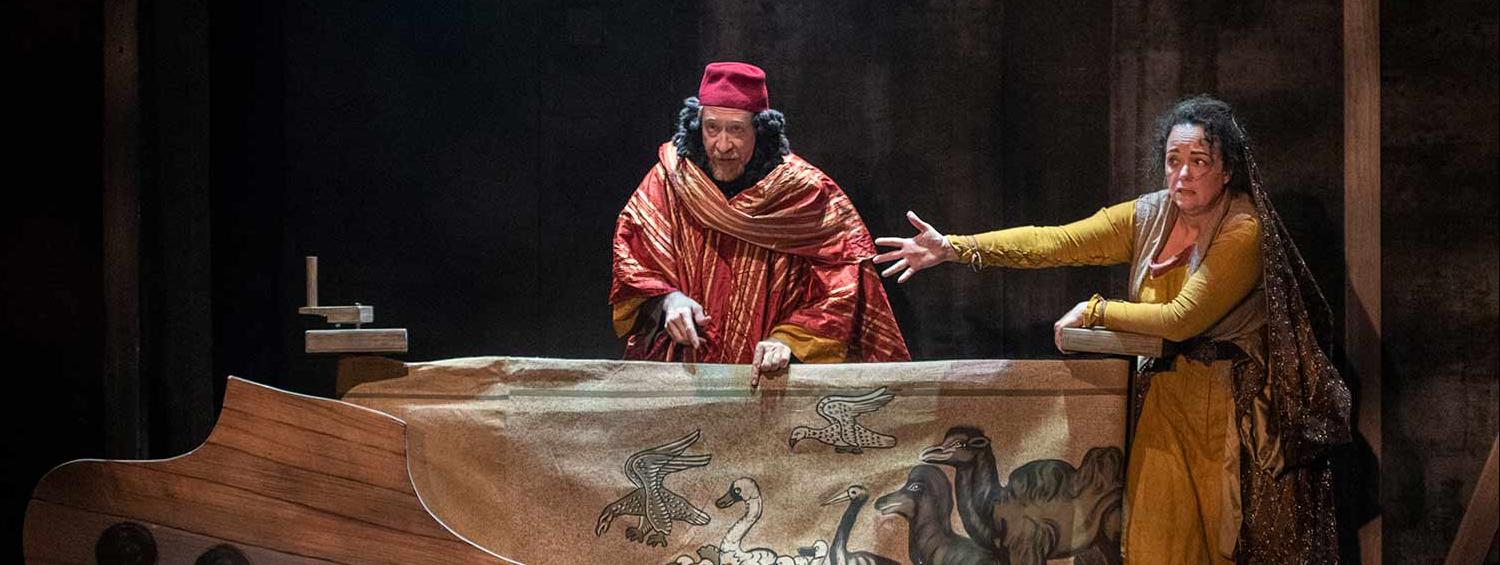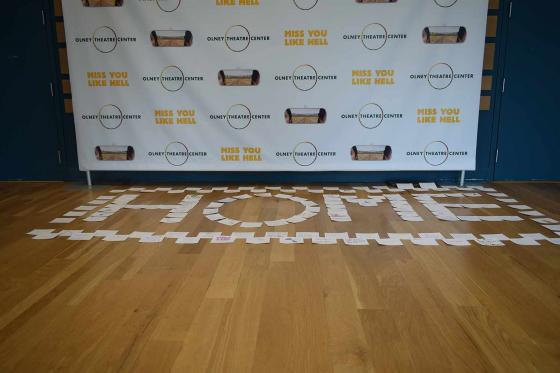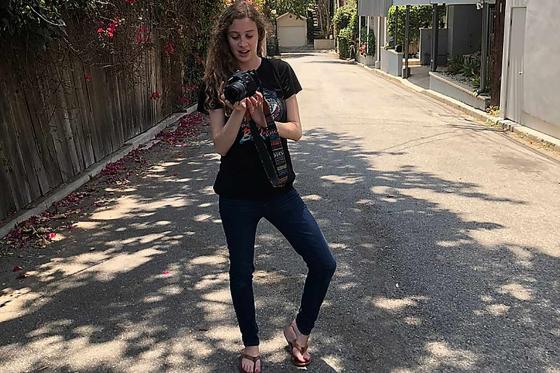In the fifth century, the early Christian Church prohibited theatre and most forms of entertainment throughout Europe. For hundreds of years, the history of drama is nearly nonexistent. However, several hundred years later, theatre reemerged within the Church itself as a tool to vividly express the story of the Bible to the illiterate public. Beginning as simple dialogue, these liturgical dramas grew more and more elaborate until they moved out into the streets and were gradually overtaken by the laity.
Starting in the 13th century, there were three major types of Medieval drama: Miracle, morality, and mystery plays. Miracle plays depicted the lives of saints. Morality plays were allegorical dramas where characters personify moral qualities such as charity of vice or abstractions such as death or youth. Mystery plays, also sometimes called “cycle plays,” retold biblical stories ranging from creation to the life of Jesus. The players in The Amateurs put on Noah’s Flood, an authentic Mystery play with written scripts dating back to the early half of the 15th century. Set in the 14th century, playwright Jordan Harrison imagines the early creation of the Noah’s Flood text by a group of traveling actors.
After leaving the church, Medieval theatre was generally staged in three ways. The first was place-and-scaffold plays, which could usually be found within or just outside a city. They were made up of several “scaffolds,” or raised stages, each of which represented a different location in the play. Another staging method, demonstrated in The Amateurs, used pageant wagons. These single or multi-story wheeled platforms could move between locations and were most commonly used during religious festivals as part of a processional through the city. The final method was hall plays, which were private performances for civic, religious, and aristocratic elites. The performances took place in the great halls of guilds, colleges, or aristocratic households.
Due to the several apocalyptic-like events of the first half of the 14th century, there is little record of what theatre looked like specifically during the time of The Amateurs. However, Harrison’s play shows how new developments in theatre, like traveling acting troupes, emerged while still amid Medieval theatre characteristics.
In the 14th century, actors, for the most part, were members of the community. They were merchants or laborers who participated in a play either for a small reimbursement or as a service to the church. Mystery plays were most frequently performed at festivals like Corpus Christi, where multiple pageant wagons presented different plays on the same day. The earliest records of a traveling troupe of actors appears in the late 15th century and looks a lot like what Harrison’s players are trying to achieve. Traveling actors would put themselves under the protection of nobles and lords. They performed at court or traveled around relying on gifts or handouts from their audiences. Some received an annual fee from their patron. The earliest upon record are those of Henry Bourchier, Earl of Essex [1404-1483]. Before this account, there is little evidence of traveling actors. However, other entertainers, such as minstrels, traveled throughout Europe providing entertainment in both public markets and private homes.
Theatre of the 14th century was a time of immense change. It had moved out of the church by the 13th century, and by the 16th century, religious drama would fade. Situated in between these milestones, The Amateurs shows how the religious drama of the Medieval era slowly morphs into the secular drama of the Renaissance. According to The Medieval Stage, “the drama which had already migrated from the church to the market-place, was to migrate still further, to the banqueting-hall. And having passed from the hands of the clergy to those of the folk, it was now to pass, after an interval of a thousand years, not immediately but ultimately, into those of a professional class of actors. Simultaneously it was to put off its exclusively religious character, and enter upon a new heritage of interest and methods, beneath the revivifying breath of humanism.”
Box Office: 301.924.3400
Open Wednesday - Sunday: 12:00 PM - 6:00 PM
Save 15% on Weeknight Performances
Use the code WEBSITE15 at checkout to save 15% on Wednesday, Thursday, and Friday night performances of Hello, Dolly! through January 2*.
*All sales final. Not valid on previously purchased tickets. Cannot be combined with any other offer. Limit 4 tickets per household. 1 order per household. Only valid on weeknight performances of Hello, Dolly! through December 19. Offer valid while supplies last.
Purchase Now





